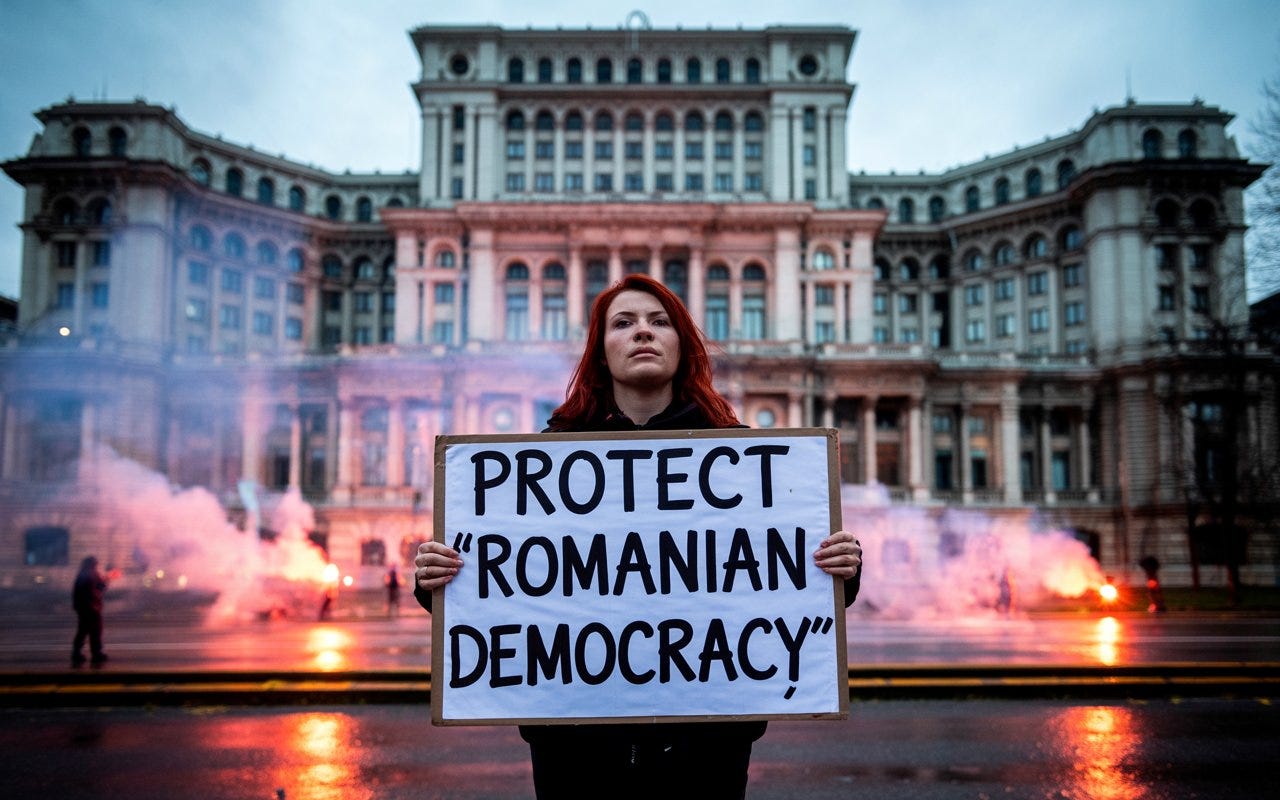The Romanian Election Crisis: A Different Perspective
Romania's political landscape has been unsettled since December 2024, when the Constitutional Court annulled the presidential election that Călin Georgescu was likely to win.
Romania's political landscape has been in turmoil since December 2024, when the Constitutional Court took the unprecedented step of annulling the presidential election that Călin Georgescu was poised to win. The official narrative, as presented in various media outlets, portrays this as a necessary intervention to prevent Russian interference and protect Romania's democratic institutions. However, there are compelling reasons to question this interpretation and consider alternative viewpoints.
The Controversial Annulment
In December 2024, Romania's top court cancelled the presidential election following the release of intelligence reports suggesting foreign interference in favour of Georgescu, a NATO-sceptic who had threatened to halt aid to Ukraine. This decision came just 48 hours before a scheduled runoff election, throwing the country's politics into chaos.
The annulment received mixed reactions. Elena Lasconi, another candidate, argued that the decision was "a hijacking of the electoral process" and that the Romanian state had "trampled over democracy." She emphasised that nine million Romanian citizens had legitimately expressed their preferences, and their will could not simply be ignored.
Georgescu himself described the court's action as a "formalised coup d'état," a sentiment that has resonated with many Romanians who already harboured deep cynicism about their political system.
Questions of Democratic Legitimacy
The court's decision to cancel an election after millions of votes had already been cast raises serious questions about the democratic process. When institutions take such drastic measures without exhausting other legal remedies first, it can undermine public trust in democracy itself.
Critics argue that if concerns existed about Georgescu's candidacy, existing legal mechanisms could have been employed prior to the election. Romanian legislation prohibits support for fascist groups, yet these tools were not utilised preemptively.
The aftermath of the annulment has only reinforced many Romanians' belief that their democracy is fundamentally flawed. In 2023, only 9% of Romanians expressed any degree of satisfaction with their national government, indicating a pre-existing crisis of confidence.
The Allegations Against Potra and Georgescu
The narrative surrounding Horațiu Potra, portrayed as a shadowy warlord behind Georgescu's campaign, deserves scrutiny. While prosecutors have made serious allegations about Potra's activities and his connections to Georgescu, both men have consistently denied wrongdoing.
Potra has explained that the cash found in raids on his property was legitimately earned through his work for presidents in Africa and the king of Qatar. He chose not to keep his money in banks after experiencing account freezes.
Georgescu initially denied knowing Potra but later admitted concealing their connection at Potra's request. He has confirmed using a limousine provided by Potra but maintains he has done nothing illegal.
The Geopolitical Context
Romania's strategic importance cannot be overstated. As a key NATO member bordering Ukraine on the eastern edge of the European Union, Romania hosts a vital NATO base set to become the alliance's largest in Europe over the next five years.
This geopolitical significance raises questions about whether external pressures influenced the decision to annul the election. The establishment's fear of a NATO-sceptic president during a time of heightened tensions with Russia may have played a role in the extraordinary measures taken.
The Current Election
The presidential election rerun is scheduled for Sunday, May 18, 2025. While Georgescu has been banned from participating, his supporters have largely shifted their backing to George Simion, another hard-right candidate who has denounced the "coup d'état" and promised to give Georgescu a role, potentially even as prime minister.
Simion, the leader of the Alliance for the Union of Romanians (AUR) party, has distanced himself from Potra, stating that he never met him and had rejected him as a potential candidate for his party. He has dismissed the allegations about an attempted insurrection as "fireworks and smoke bombs and distraction"2.
International Reactions
The Romanian election crisis has attracted international attention, with figures like U.S. President Donald Trump, Vice President JD Vance, and Elon Musk citing it as evidence of problems in European democracy. This suggests that concerns about the legitimacy of the court's intervention extend beyond Romania's borders.
The Conclusion
As Romania prepares for the final round of voting, citizens face a profound choice about their country's future direction. The controversy surrounding the annulled election has exposed deep divisions and raised fundamental questions about democratic processes and institutional legitimacy.
Whatever the outcome on Sunday, Romania's political establishment will need to work hard to restore public trust in a system that many citizens now view with deep scepticism. The true test will be whether the country can move forward with a government that most Romanians recognise as legitimate, regardless of political orientation.
In a democracy, the will of the people must ultimately prevail-even when that will challenge the status quo or makes powerful institutions uncomfortable. The coming days will reveal whether Romania can meet this essential democratic standard.



